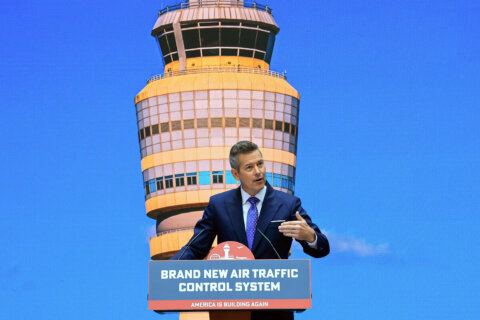WASHINGTON — As Virginia considers whether to build new toll lanes on Interstate 66 using a full public-private partnership, the specter of recent failed “P3s” is hard to avoid anywhere in Virginia politics.
On Friday, Gov. Terry McAuliffe announced a change to a project in Portsmouth that would have charged tolls on an extension of the Martin Luther King Freeway. The commonwealth will use $78 million that had been designated for the now-defunct public-private partnership for Route 460 from Suffolk to Petersburg to buy out the tolls.
The Route 460 project championed by former Gov. Bob McDonnell’s administration ended up with the state spending about a quarter of a billion dollars, only to get nothing out of it.
The financial and other issues with the project have made it a favorite punching bag of politicians on all sides, and an inescapable analogy for politicians who drop it in often without a detailed explanation for people who are not plugged in to the long-running fight.
For example, at the ribbon cutting for the new Route 29 and Linton Hall Road interchange in Gainesville Thursday , Sen. Dick Black (R-Loudoun), who is being challenged by Democrat Jill McCabe this fall, took the opportunity to dig at the project.
“I would just like to make a stark contrast between a really well-run project like this – this was a $230 million project, roughly the same size as the project that was attempted on Route 460 on the other side of the state…. we spent as much money on that project, as we did on this enormous successful project here, and in the course of doing highway 460, we did not lay as much asphalt as I have in my driveway at home,” Black said.
“Unbelievable…not one cubic foot of asphalt laid down there,” Black added.
Virginia Transportation Secretary Aubrey Layne, sitting next to the podium, nodded in agreement – something that can be rare for a Democratic appointee and the conservative Black.
Layne is playing a key role in the decision on how to set up the I-66 project.
Layne, like other state officials and politicians, also regularly alludes to bad deals like 460.
“[We] try to deliver to the commonwealth pragmatic and really good fiduciary responsibility-type projects on behalf of the commonwealth, which this one represents today,” Layne said at the ribbon cutting.
He made similar comments, directly referencing 460, at a Commonwealth Transportation Board Meeting where new details were presented on potential options for funding and operating I-66 with more state control than a full public-private partnership.
“One of the things that Gov. McAuliffe has made clear as we deliver these transportation projects [is] that we would do two things: one is that we would pick the right projects…and the second is we would be good stewards of taxpayer money,” Layne added at the event Thursday.
McAuliffe (D) has regularly cited the problems with 460 on WTOP’s Ask the Governor and elsewhere.
“I inherited a mess, a P3 on 460. Virginians should be outraged that $300 million was spent,” McAuliffe said on WTOP’s Ask the Governor in May.
“P3s have worked, but that was a P3 that didn’t work,” McAuliffe said.
Earlier this month, McAuliffe announced a settlement over the road that will give Virginia $46 million back, and eliminate a $103 million outstanding claim from the group contracted to build and operate the road.
The group had received more than $250 million in payments for the project, which was pitched as a way to provide a new route for truck traffic that could help the Port of Virginia handle bigger ships from the widened Panama Canal. But many elected leaders spoke out against the project early on.
The 55-mile toll road was not projected to regularly carry a significantly higher number of vehicles overall than the existing U.S. 460 could have handled with smaller improvements, but the McDonnell administration said that in addition to an economic impact, the $1.4 billion road would have provided a crucial alternative to Interstate 64 that could also help with hurricane evacuations.
McDonnell had supported the road since he represented the area in the House of Delegates.
A state review of the project after McAuliffe shut it down found that the public-private partnership deal should have been more transparent.
The project never got the environmental permits it needed from the Army Corps of Engineers amid concerns about the impact on wetlands.







